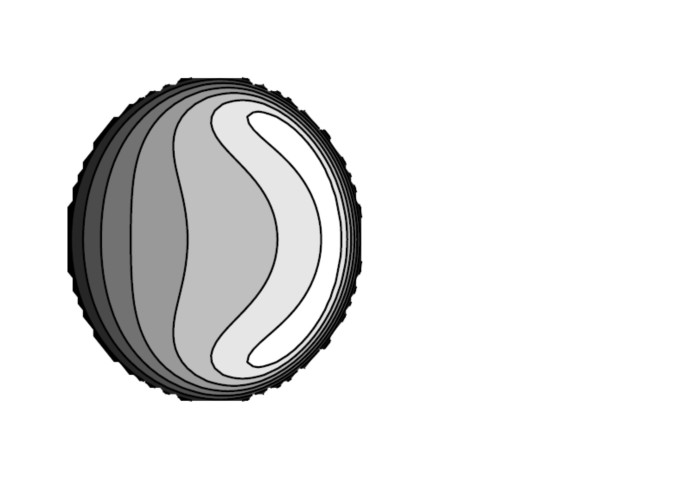Aeronautics researchers to develop longer-lasting artificial joints
by Tom Creese

Point contact pressure profile in an artificial hip replacement
Imperial College London is one of the partners in a new £4 million research project that will develop a new generation of artificial joints.
The project aims to produce longer-lasting artificial joints that cause fewer side effects and are better suited for younger people.
The researchers hope to use advanced computer simulation and laboratory tests that capture a more accurate picture of implants performance in a range of human activities including running, walking and jumping.
The international collaboration, led by the University of Leeds and funded by the EU’s Horizon 2020 programme, will focus on improved design and testing to reduce the likelihood that implants develop faults and fail, or cause orthopaedic complications.

The Department of Aeronautics’ Dr Rob Hewson, who will lead Imperial’s research, says “although this research is in the field of bio-tribology, the research will exploit many of the core analysis and computational methods we apply in aeronautical engineering. It once again demonstrates how we in the Department can apply our expertise broadly in a wide range of sectors.”

As part of the EU Horizon sponsored project (‘Advanced Research Training for the Biotribology of Natural and Artificial Joints in the 21st Century'), Imperial College London will receive €606,345 (£520,006) to fund two research posts specialising in the fundamental tribology of biomechanical interfaces.
Along with the University of Leeds and Imperial, other project partners include ETH Zurich, Uppsala University and Lulea Technical University. The project will also train early career researchers for the medical devices industry.
This news story was adapted from a press release by the University of Leeds.
Article text (excluding photos or graphics) © Imperial College London.
Photos and graphics subject to third party copyright used with permission or © Imperial College London.
Reporter
Tom Creese
Department of Aeronautics